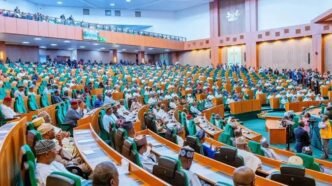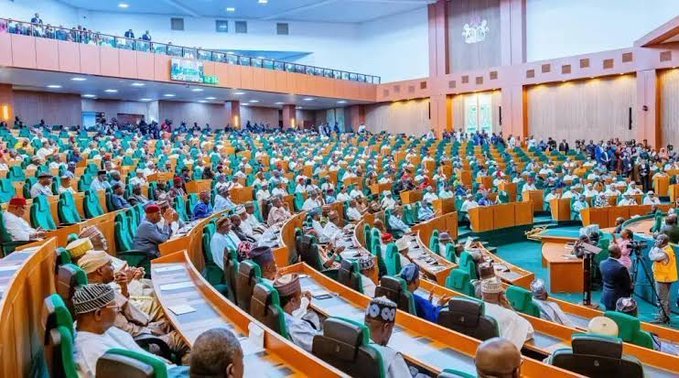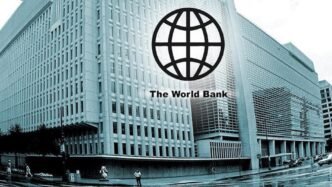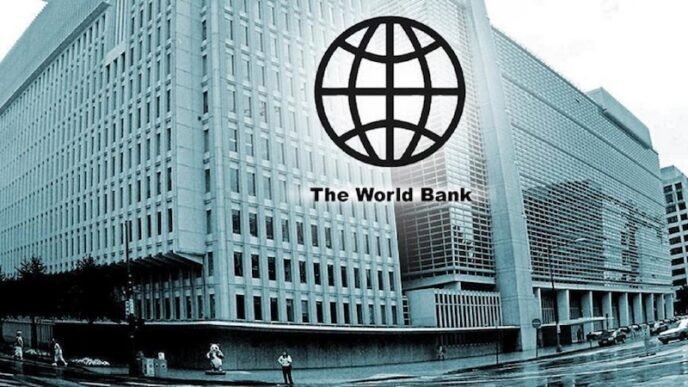The House of Representatives Committee on Downstream Petroleum Resources has strongly criticised the Petroleum and Natural Gas Senior Staff Association of Nigeria (PENGASSAN) for directing its members in certain branches to halt gas and crude oil supplies to the Dangote Petroleum Refinery. The move, the lawmakers said, poses significant risks to the stability of Nigeria’s energy sector, the nation’s economy, and the welfare of millions of citizens who depend on petroleum products daily.
The intervention by the committee follows the escalation of PENGASSAN’s ongoing industrial action, which was sparked by a dispute with the management of the Dangote Refinery over allegations of unfair labour practices and the dismissal of workers belonging to the union.
Lawmakers raise alarm
During a press briefing at the National Assembly complex in Abuja, the Chairman of the Committee on Downstream Petroleum Resources, Hon. (name placeholder), condemned PENGASSAN’s directive, describing it as “unpatriotic and dangerous to national security.”
According to the committee, while workers and unions have the right to demand fair treatment, such disputes must be handled within the framework of industrial relations and the law, without crippling a refinery considered central to Nigeria’s economic recovery strategy.
“The Dangote Refinery is not just another oil facility; it is a critical national asset that plays a significant role in reducing Nigeria’s dependence on imported petroleum products. Any attempt to disrupt its operations by cutting off crude oil or gas supply is a direct threat to national energy security and economic stability,” the committee chairman stated.
The lawmakers urged PENGASSAN to immediately rescind its order and return to the negotiation table, emphasising that the National Assembly is ready to mediate in order to protect both workers’ rights and the national interest.
Background to the crisis
The dispute stems from allegations that the Dangote Refinery management sacked several workers who joined PENGASSAN, a move the union described as “union-busting and an attack on the fundamental rights of employees.”
In response, PENGASSAN issued a directive to its branches involved in crude oil and gas supply chains, instructing them to halt the provision of these essential resources to the refinery until the matter is resolved.
The refinery, which recently commenced large-scale production of petrol, diesel, and aviation fuel, relies heavily on steady supplies of crude oil and gas for its operations. The directive, if fully implemented, could severely disrupt the facility’s production schedule, potentially leading to fuel shortages across the country.
Lawmakers highlight national consequences
The House Committee on Downstream Petroleum Resources warned that if crude oil and gas supplies to the Dangote Refinery are cut off, the ripple effects will be devastating.
Firstly, the lawmakers noted that Nigeria’s already fragile fuel supply chain would face enormous pressure. With the refinery producing a significant volume of the petrol, diesel, and aviation fuel currently available in the domestic market, any disruption could trigger scarcity, long queues at filling stations, and price hikes.
Secondly, the committee highlighted the broader economic implications, including the impact on inflation, industrial output, and the transport sector. The refinery has been seen as a crucial factor in stabilising the Nigerian naira by reducing foreign exchange outflows for fuel imports. A supply cut, according to the lawmakers, could reverse some of the gains made since the refinery began operations.
“Millions of Nigerians will bear the brunt if this directive is allowed to stand. We are talking about higher transport fares, rising food prices, and general economic hardship. This is why we consider PENGASSAN’s action ill-timed and unacceptable,” the committee’s statement added.
A call for dialogue and restraint
The lawmakers insisted that the National Assembly respects the rights of unions to organise and protect their members. However, they stressed that labour disputes must not be pursued in ways that jeopardise national assets or undermine public interest.
They called on both PENGASSAN and the Dangote Refinery management to demonstrate restraint, adopt dialogue, and allow mediators, including the Ministry of Labour and Employment, to find a lasting resolution.
“The union must avoid actions that could worsen the plight of Nigerians who are already grappling with tough economic realities. At the same time, the management of the refinery must engage constructively and ensure that workers’ rights are protected. Both sides must meet at the table and find common ground,” the committee said.
The refinery’s role in Nigeria’s economy
Commissioned with much fanfare, the Dangote Refinery has been touted as a game-changer for Nigeria’s energy sector. Designed to process 650,000 barrels of crude oil per day, it is the largest single-train refinery in the world and a project that has drawn international attention.
The facility has been instrumental in reducing Nigeria’s reliance on imported petroleum products, which has historically strained the country’s foreign exchange reserves and contributed to recurring fuel scarcity. In recent months, the refinery has supplied a significant proportion of petrol and diesel consumed locally, helping to stabilise supply and ease pressure on the Nigerian National Petroleum Company Limited (NNPCL).
Given its strategic importance, many stakeholders argue that industrial disputes involving the refinery must be handled with extraordinary care to avoid disruptions with nationwide consequences.
Reactions from stakeholders
While the House Committee strongly condemned PENGASSAN’s directive, reactions from other stakeholders have been more nuanced.
Some civil society groups have supported PENGASSAN’s position, arguing that workers’ rights must not be trampled upon in the name of national interest. According to them, the refinery must respect the right of workers to unionise and must reinstate those allegedly dismissed for joining the union.
On the other hand, industry experts warn that PENGASSAN’s action could backfire, as it risks alienating public sympathy and inviting legal or governmental sanctions.
“Labour unions are powerful forces in Nigeria, but they must wield that power responsibly. Disrupting the operations of a refinery that Nigerians are counting on for fuel supply is counterproductive. It could turn public opinion against them, no matter how legitimate their grievances are,” an oil industry analyst noted.
Possible government intervention
There are indications that the Federal Government may step in to prevent a full-scale disruption at the refinery. Sources within the Ministry of Labour and Employment disclosed that discussions are ongoing with both PENGASSAN and the Dangote Group to find a compromise.
The ministry is expected to convene a tripartite meeting in the coming days involving representatives of the union, the refinery’s management, and relevant government agencies.
The House Committee has also pledged to monitor developments closely and provide legislative support to ensure the matter is resolved amicably.
Conclusion
The ongoing standoff between PENGASSAN and the Dangote Refinery has highlighted the delicate balance between protecting workers’ rights and safeguarding national economic interests. While the union insists it is defending its members against unfair practices, the lawmakers warn that halting supplies to the refinery could have catastrophic consequences for Nigeria’s energy stability and economy.
As the situation unfolds, Nigerians watch anxiously, aware that the outcome will not only shape labour relations within the refinery but also determine the stability of fuel supply across the country. The call from the House of Representatives Committee is clear: dialogue, restraint, and prioritising the national interest above all else.














